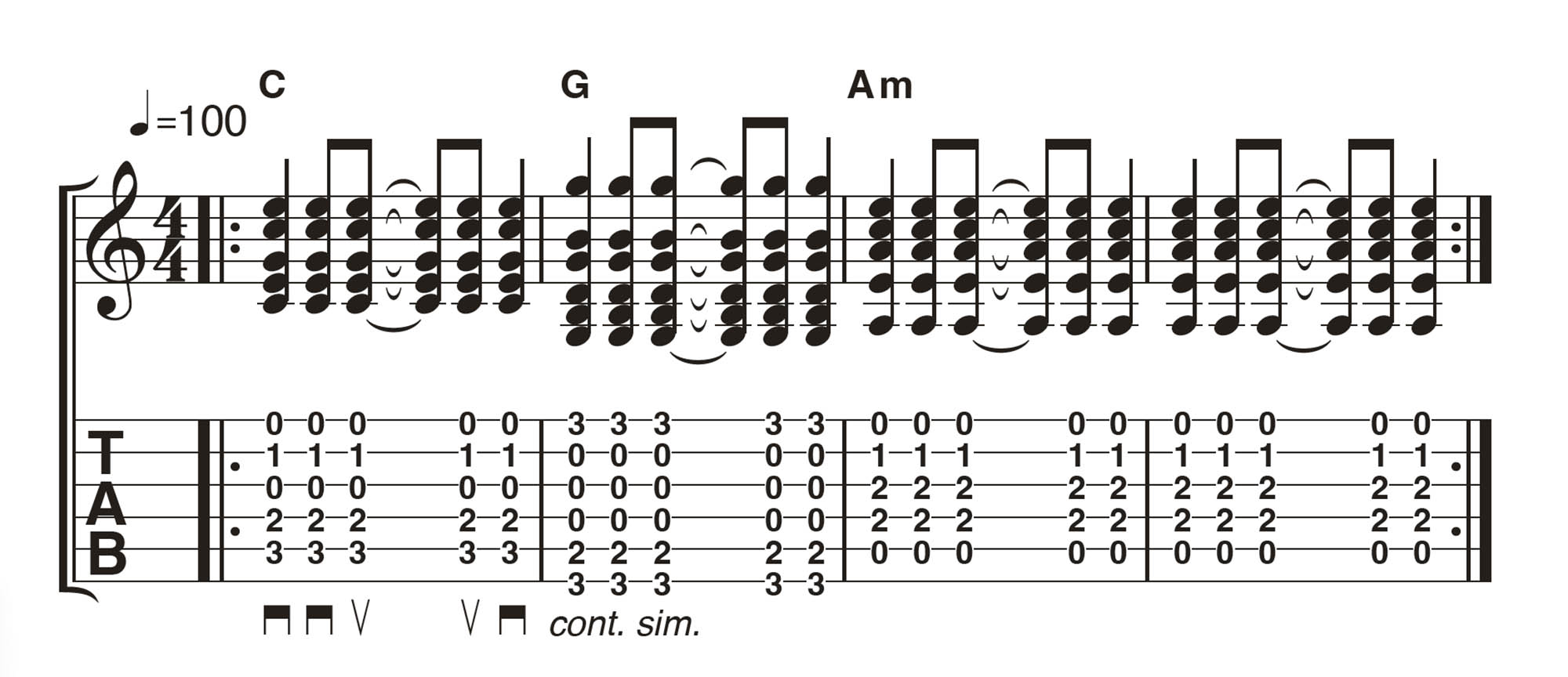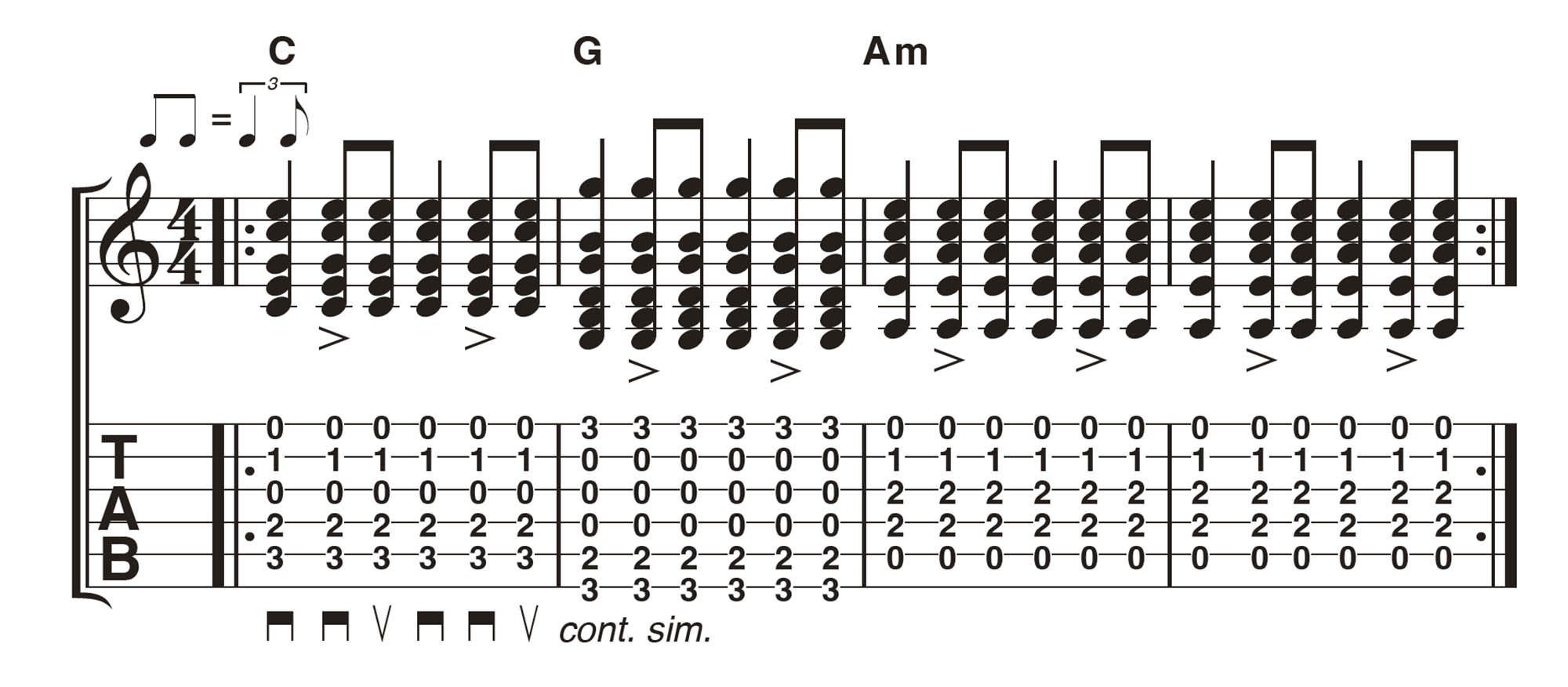“Perfect for campfire songs or late-night singalongs”: If you play acoustic guitar, you need to learn how to strum – here are 5 essential strumming patterns for beginner players
This lesson unpacks one of the fundamental skills of playing guitar, and offers a launchpad for budding singer-songwriters. All you need is three chords and the truth

There’s something special about acoustic guitars. The resonance of the wood right up against your ribs is a unique experience. In this lesson, we’ll go over six easy strumming patterns so you’ll be ready for any acoustic situation. Visit Guitar Tricks for more in-depth and step-by-step acoustic guitar lessons, too.
When learning how to play guitar, the first strumming pattern you need to understand is the simple eighth-note downstroke/upstroke pattern. It’s as straightforward as it sounds: a simple down-up-down-up strumming pattern in an eighth-note rhythm. To make this more interesting, we’ll be doing this with both ‘straight’ and ‘swing’ feel (more on that across the page) in examples 1 and 2.
Next up is a folk/country strumming rhythm, which alternates between the bass strings and the higher strings. Because folk music is narrative driven, the feel of this strumming pattern is a great complement for that storytelling.
We’ll also take a look at a great acoustic rhythm for you singer-songwriters; the eighth-note downstroke, complete with palm-muting for volume control, a drier feel and the option to accent the chords you play.
In our final example, we’ll switch up the time signature to a 6/8 feel. This is a super-fun meter to play in which is perfect for campfire songs or late-night singalongs. Instead of counting to four to keep time, you’ll count two groupings of three beats to get the feel. Again, follow the tab and head to the video lesson for more assistance.
Example 1. Eighth Notes

This is basic strumming for acoustic guitar. Note that the strumming pattern goes: down, down-up, up-down.
Example 2. Swing Rhythm

For a swing feel, simply space out your down- and upstrokes so that the downs last twice as long as the ups. It’s also known as triplet feel.
Example 3. Folk/country pattern

This pattern adds a nice motion to your chords. Notice that the main technique is targeting your pick to alternate between striking individual bass notes followed by the higher notes of the chord.
Aim to be as precise as possible on the bass notes, but a little freer on the higher notes. It often doesn’t matter if you don’t hit every note of the chord, as long as your timing is good.
Example 4. Eighth-note downstrokes

Implementing some palm-muting with this rhythm will give you a signature singer/songwriter acoustic vibe. The idea is to rest the side of your strumming hand gently over the strings where they meet the bridge. Aim for just a little light muting of the strings’ natural resonance.
Example 5. Playing in 6/8

Changing the meter from 4/4 to 6/8 will give your acoustic playing more depth. The trick is counting to six along with the music.
Try saying ‘1 2 3 4 5 6’, ‘1 2 3 1 2 3’ or ‘ 1 & a 2 & a’ to keep time, emphasising the first and fourth beats to establish the groove. Start with downstrokes on all six beats, then try adding some upstrokes between the beats – as we’ve done in the tab here. The important thing here is to get very comfortable with the groove and feel.
- Guitar Tricks’ step-by-step lessons will be your guide to learning how to play guitar. With our Core Learning System, video feedback, practice reminders and Custom Lesson Plans you will save tons of time on your guitar learning journey. Guitar Tricks has a 14-day free trial plus a 60-day money-back guarantee so you can purchase with confidence.
Get The Pick Newsletter
All the latest guitar news, interviews, lessons, reviews, deals and more, direct to your inbox!
Throughout Gary’s career, from public school modern band teacher, to Director of Curriculum at Little Kids Rock and currently guitar influencer at POW Music, there has been one single mission – to empower students to discover, play, and create music on their own terms. His role is simply to be the best guide he can be.










![Joe Bonamassa [left] wears a deep blue suit and polka-dotted shirt and plays his green refin Strat; the late Irish blues legend Rory Gallagher [right] screams and inflicts some punishment on his heavily worn number one Stratocaster.](https://cdn.mos.cms.futurecdn.net/cw28h7UBcTVfTLs7p7eiLe.jpg)
